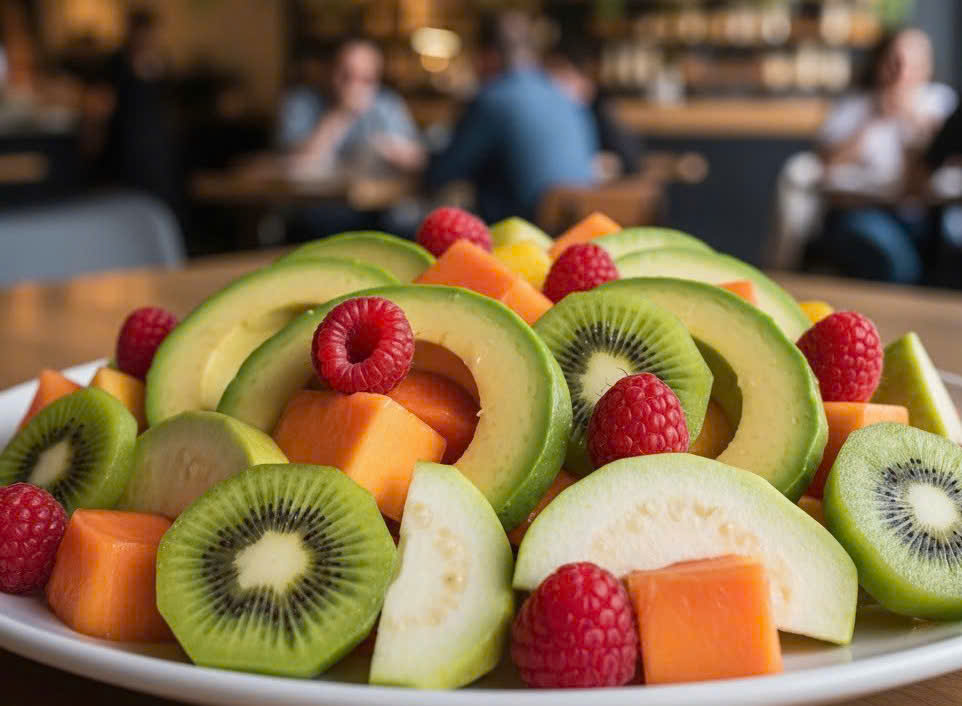Vitamin E is a fat-soluble antioxidant involved in hormone synthesis and protecting cell membranes from free radicals. Doctor Nguyen Anh Duy Tung, a specialist in dietary nutrition at Tam Anh General Clinic, District 7, says that vitamin E deficiency can cause menstrual disorders, reduced fertility, dry skin, and premature aging. Adult women need an average of 8-10 mg of vitamin E per day, while men need about 10-12 mg.
Avocados contain 2.07 mg of vitamin E per 100 g, along with monounsaturated fats, which help increase the absorption of oil-soluble vitamins. Eating avocados daily helps balance hormones, beautifies skin, and benefits cardiovascular health.
Kiwis are rich in vitamins E and C, and fiber. This fruit is a potent antioxidant, boosts immune function, and reduces stress, a factor that can easily disrupt hormone balance in women.
Ripe mangoes provide about 1.12 mg of vitamin E per 100 g, while also supplying beta-carotene, balancing estrogen, and improving skin and hair.
 |
Fruits rich in vitamin E support female hormone balance. Photo: Trong Nghia |
Guavas contain vitamin E and a high amount of vitamin C, which act as antioxidants, protect the ovaries, and support hormone regulation. Regular guava consumption benefits the skin and strengthens the immune system.
Papayas contain vitamins E and C, and folate, which support female hormones, especially during pre-menopause.
Raspberries are rich in vitamins E and C, fiber, and anthocyanins. These nutrients help balance female hormones, protect the ovaries, reduce inflammation, and slow down cell aging.
Doctor Duy Tung says vitamin E is especially important for women because it participates in regulating the brain-pituitary-ovarian axis. Supplementing with vitamin E from fruits and seeds helps balance estrogen and progesterone. In addition, supplementing with natural extracts like lepidium meyenii, which contains amino acids, sterols, alkaloids, and glucosinolates, supports the body in producing sufficient hormones, improving beauty and physiological functions.
In addition to diet, the doctor recommends that women get enough sleep, exercise regularly, and limit stress. Those with severe hormonal imbalances should seek medical attention and avoid overusing high-dose supplements to limit the risk of side effects.
Trong Nghia
| Readers can submit questions about nutrition here for doctors to answer. |












